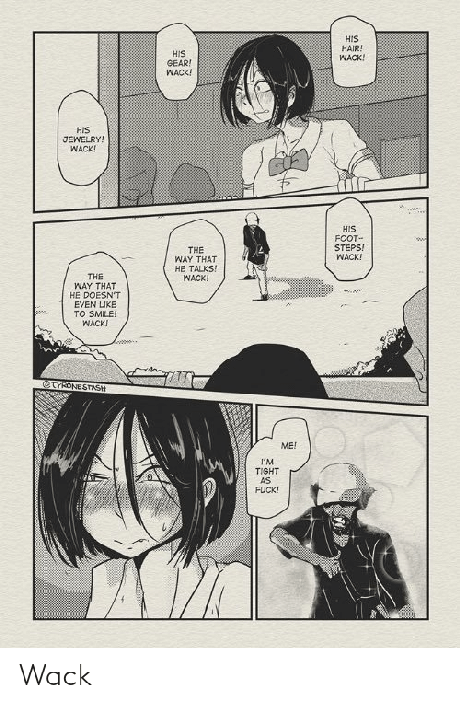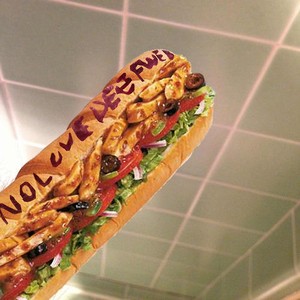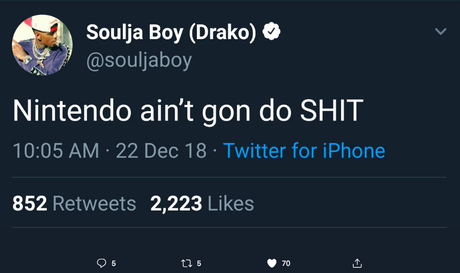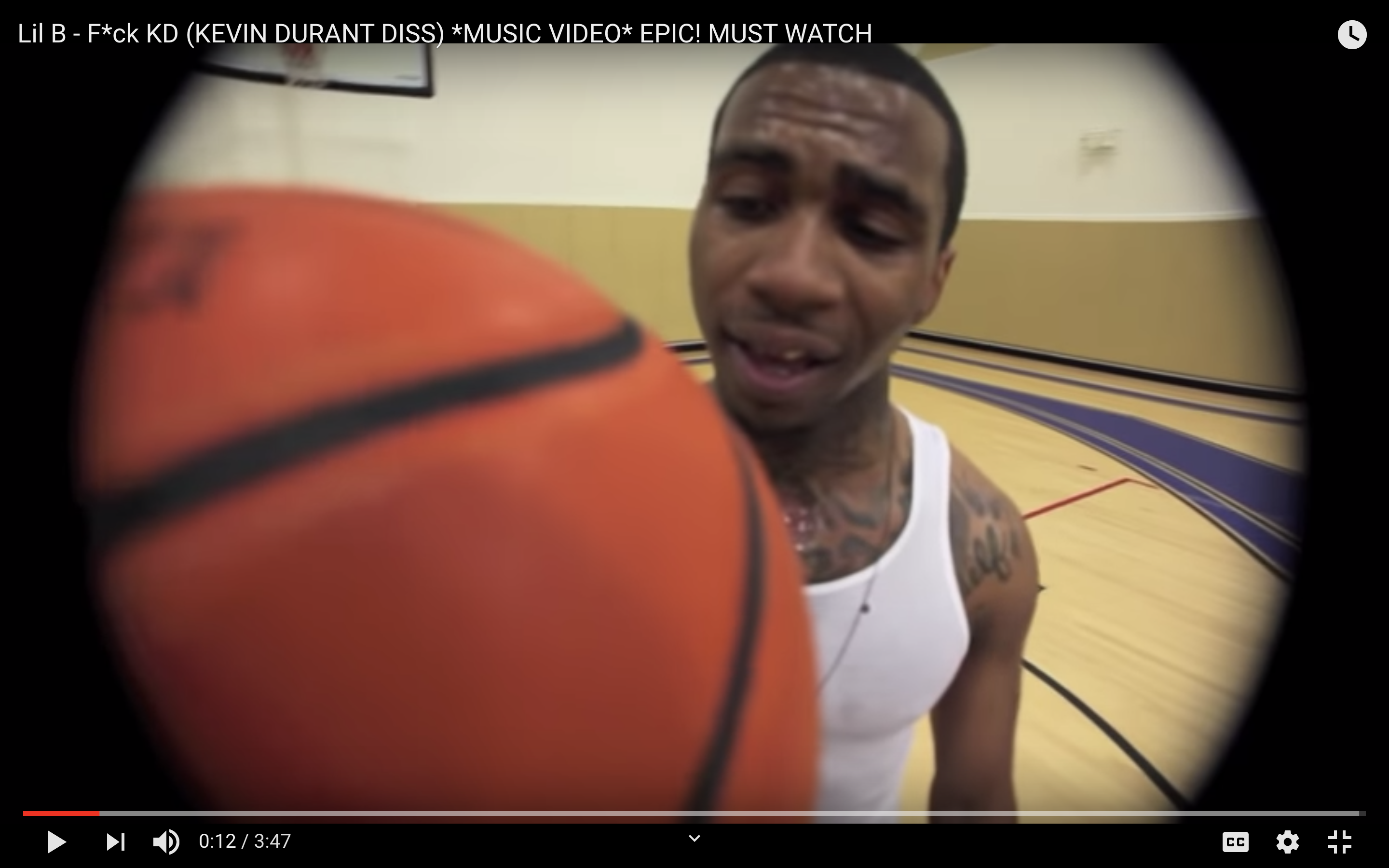In The Decade in Internet, artists and writers reflect on their favorite moments from the 2010s. Most recently writer Zoe Dubno tracked the decade's many cancellations. Here, artist Devin Kenny unpacks the influence of some of the internet's landmark figures, moments, and phenomena.
Lil B
In the early 2010s, Berkeley, California’s Lil B–formerly of The Pack–and Oakland’s Main Attrakionz worked to develop cloud rap, paving the way for Yung Lean, The Underachievers, and influencing A$AP Rocky and others. Lil B created new niches and microgenres for many artists. Thanks to Clams Casino’s production bringing in vaporwave sonic landscapes, Lil B was able to explore a variety of different affective spaces like absurdity and deep sorrow, while maintaining rap’s old stalwarts: introspection, celebration, self-aggrandizement and machismo. Besides the music’s content, his vocal performance on these songs was often a jarring and meandering stream-of-consciousness (particularly in the ‘based freestyles’). These songs did not stand out on the basis of old hat metrics like lyrical prowess or singing ability, but instead due to the “it’s so bad it’s good” effect and Lil B’s knack for cultivating earworms and catchy ad-libs like “swag!” “Woop!” “Thank you based god!,” which had been heard before in hyphy, bounce, juke, miami bass, and trap, but never quite like this. Imagine walking outside and seeing a cloud of business cards fluttering down from the sky. You pick one up off the ground to find it’s covered in taglines and slogans.You flip the card over and see the name and contact info of a person. You don’t know what this person does or if they even do it well, but the novelty and brazenness alone might propel you to give it a shot and tell your friends.
Lil B the Basedgod’s impact as a character or meme surpassed his career as a musician after he took a page from the Soulja Boy book and popularized the “cooking dance,” which quickly went viral. The dance and Lil B’s likeness circulated far and wide, online and through traditional mass media–NBA and NFL players were doing the cooking dance; Lil B’s likeness appeared in image memes; suddenly his catchphrase–”TYBG” or “Thank you based god”–was everywhere, in status updates, comments, and as a fun thing to blurt out in basically any situation. Lastly, Lil B’s influence on Black American masculinity is noteworthy as B poked fun at hip-hop cliches tied to narrow conceptions of what it is to be a black man. He’d refer to himself as a “pretty b*tch” or “gay.” He wore filthy, decrepit Vans classic shoes (possibly a nod to his history in The Pack), muscle shirts, feminine jewelry and hats, wore pink (following in the footsteps of predecessors Charles Hamilton and Cam’Ron), and wore sagging skinny jeans a.k.a.“tiny pants”. Lil B's marketing tactics were part and parcel with the music–as I wrote about in 2011–but he also forged a model that would later be used by other rappers such as Lil Yachty, Lil Pump, Boonk Gang, Tekashi 69, Young Thug, Lil Uzi Vert and many others. The fact that a number of these artists signed to major labels proves the Lil B model’s viability and suggest that the rapper's tactics effectively changed the landscape of the music industry overall.
Lil B also cursed Kevin Durant and then removed the curse some time later, after which point Durant got the championship, which could be a total coincidence.
WACK, 2016
One of the highlights of 2016 was a video shot from above of a young Black man standing in a dynamic pose with a white baseball cap obscuring his face and a Palace bag slung across his chest, stating loudly to seemingly no one, but to everyone:
“His hair? WACK His gear?WACK His jewelry? WACK His foot stance? WACK The way that he talks? WACK The way that he doesn't even like to smile? WACK Me? I'M TIGHT AS FUCK!”
This video was endlessly reiterated over the year and beyond, often with manga or anime versions:

The person in the video is Jamal Smith, also known as “the godfather of youtube skateboarding,” who went viral in 2010 for a skate video he had made in 2006 introducing a trick that he called the “tornado spin.” In his 2016 compact but poetic diatribe, he appears to be criticizing “Wade D”–likely Wade Desarmo of DGK skateboard/apparel company founded in Philadelphia. However, without this context, we receive a perfect projection screen that can be used as a metaphor for criticizing any person or idea.
Death Grips “No Love Deep Web” leaked by Death Grips on Reddit
Death Grips’–consisting of MC Ride, Zach Hill (of Hella) and producer/engineer Flatlander– first album Exmilitary was released in 2010. I saw them play a show after this release at Market Hotel. It felt great, kind of like being in a mosh pit with a sleeping bag on, swaddled. If you came in dry, you left drenched, if you came in clean, you left with a thin but noticeable film of body soil. In 2012, the group signed with Epic Records and The Money Store received wide critical acclaim. The internet’s busiest music nerd Anthony Fantano (theneedledrop) gave it a perfect score, his first. After this album’s release, the group announced that all of their concerts were cancelled. On Facebook, they attributed these cancellations to their work on a new album called No Love (later No Love Deep Web). Mere hours later a thread was posted on the /mu/ board of 4chat with a link to an image file that included a message reading "NO LOVE DEEP WEB COMING OCTOBER23 M0RE TO COME" and an unmastered version of The Money Store (album art by Sua Yoo). Three weeks before its scheduled release date, the band relayed the message from the Epic that the album had been delayed indefinitely. The next day they leaked the album to bittorrent, soundcloud, and others. Epic terminated their contract shortly afterwards and no further charges were filed against them. Their album was released with a Creative Commons Attribution 3.0 license ( [Amour and Discipline. November 1, 2012] ) and then with a license allowing for remixing and sharing but only under non-commercial conditions.
The band’s stance on copyright is certainly one major point of interest here, and likely one that was not met so kindly by their label. he embrace of Creative Commons is in good keeping with ‘the spirit of the internet’–similar to the hacker ethos of ‘information wants to be free’ but not quite identical–it’s not great for maximizing profit. Additionally the album art–a photograph of an erect penis with the album title written across it in marker–became a template for many memes, often with the meme parody of the cover being used in reviews in lieu of a censored version of the cover.


The trend of album covers of highly anticipated projects being reinterpreted as memes would continue throughout the decade, even resulting in some musicians going so far as to create apps that would allow people to customize their own/make their own version of album art, replete with share buttons for easy dissemination.
Facebook live video of the murder of Philando Castile #blacklivesmatter
This decade has seen countless highly publicized instances of police misconduct, many of which resulted in civilian deaths–with Black people having a significantly higher likelihood of suffering this fate than White Americans. Sean Bell, Kimani Gray, Rekia Boyd, Eric Garner, Sandra Bland, Tamir Rice, Greg Gunn, Kenneth Chamberlain Sr., Atatiana Jefferson, Shelley "Treasure" Hilliard, and far too many others have died as a result of police actions, often with the officers facing no repercussions in the end. The significance of this particular tragedy being broadcast live on social media is that it not only reignited a national conversation about police brutality and state-sponsored anti-blackness, but also about the role of social media platform in a much longer long history of circulation of images of Black suffering. Some time later, Facebook rolled out a new feature that would put a “trigger warning” on videos that explicitly show violence and other disturbing content.
Social Media Takeover
The rise of social media platforms and the fusing of social networks with social media is one of the most significant shifts in network culture over the past decade. This includes such moments as:
The boom of Tumblr, the bust of Tumblr, the purge of Tumblr; Ello positioning itself as the ad-free social-networking alternative only to later sell out and pivot to chasing Pinterest's bag; the explosion of Facebook; Facebook deleting people whose names appear to clash with the intent of the network (in an attempt to target spammers), causing brutal fallout for trans users who didn’t want to be deadnamed. The Cambridge Analytica scandal; collusion with insurgent bots to influence election results; wagesforfacebook.com; the rise and fall and rise again of Snapchat; the launch of to.be, NewHive (R.I.P), dump.fm, and other artist-centric zones; the launch of Pinterest, Myspace’s continual decline, the dawn of musical.ly which was eventually subsumed by TikTok, the brief relaunch of blackplanet.com; the launch of alternatives like are.na, and the distribution of tools for creating one’s own social network, and more.
Previous generations patted themselves on the back for railing against corporate programming by suits on TV and the Radio, instead opting for DIY distribution networks–zines, independent record companies, college radio, public access TV, indymedia.org, booking their own tours, making your own websites, bulletin boards, chatrooms–that served interests that the powers that be had no interest in serving. Decades later, this practice has by and large shifted into the use of social networking websites that, as they’ve grown, have become increasingly corporate in structure and ideology, or have been sold to even more powerful corporate entities. One can no longer point to television programmers as the source of the issues; with “the filter bubble” and platforms’ reliance upon algorithms, we now have no one to blame but ourselves. On many of these platforms, one can take the role of an individual, a business, a troll, or some combination, collapsing the role of consumer and producer of media content, news, affect with unprecedented ease. This new order disrupts old power relationships in some ways, but maintains them in most.
Kim Dotcom Raid
On January 19, 2012, Megaupload’s domain was seized on charges of money laundering, racketeering, wire fraud, and copyright infringement. Kim Dotcom, founder of the file hosting service was arrested in New Zealand and his palatial estate raided at gunpoint by Special Tactics officers.
Megaupload was the last bastion of the culture of online file sharing initially popularized by Napster–though pirated media existed long before that in other forms with other media types–and the like. Online piracy expanded in the mid 00s into the 2010s with Rapidshare, Megaupload, Bittorrent–which was originally developed to be an alternative to the http and ftp transfer protocols that were dominant–as well as a plethora of other peer-to-peer transfer programs. Kim Dotcom’s situation is also of note because he was being monitored and was an active opponent of the SOPA/PIPA acts (Stop Online Piracy Act/Protect Intellectual Property Act) which died in Congress just a day before his arrest. While the challenge of sending and posting large files has become the domain of other services, the issues regarding internet privacy and information sharing have continued to reverberate in culture and politics and through figures such as Edward Snowden and Chelsea Manning.
Aaron Swartz's Death
Aaron Swartz who was essentially a co-founder of Reddit through his existing project Infogami merging with Reddit to create Not a Bug, Inc. He was also one of the authors of what would become RSS 1.0. In addition, he was very active in the protests against the SOPA/PIPA bill after launching the Progressive Change Campaign Committee in 2009. In 2011, he copied millions of medical journals from the educational database JSTOR, an action that was in essence,an argument for the expansion of public domain, partially because oftentimes the research being published on JSTOR is actually supported by federal funding. Facing 13 felony counts that could amount to 35-50 years in prison, he rejected a plea deal for 6 months. After fighting valiantly for the felony charges to be reduced to misdemeanors, his own counter-offer to the prosecution was rejected and shortly after, he was found dead of an alleged suicide. In 2013, JSTOR would release millions of articles to the public. In 2013, Swartz was posthumously inducted into the Internet Hall of Fame. November 9, 2019 marked "Aaron Swartz Day" worldwide.
“On Fleek,” Peaches Monroee
Kayla Newman a.k.a Peaches Monroee coined the term “On Fleek” in a 2014 Vine video, which then went viral across various platforms and quickly entered common parlance. The phrase made its way into a number of songs by people like Cardi B, PnB Rock, Christina Milian, Nicki Minaj & Beyonce, Offset, and others. Though she initially did not benefit from the creation of this term (perhaps a portmanteau of ‘fly’ and ‘sleek’) and its popularity–despite it being used in the social media and other campaigns by major companies such as Taco Bell,Forever 21, H&M, and IHOP–Peaches Monroee was eventually able to begin her own hair and beauty line On Fleek Extensions. In 2017 there were rumors that Monroee was in the process of trademarking the word. (a la Paris Hilton and “that’s hot”). Crystalizing movements of self-care and self-love into a single term of affirmation, “on fleek” opened up conversations concerning Black intellectual and cultural property, as well as minor strategies to combat the self-esteem crushing possibilities of the hypermediated landscape that informs network culture.
Tekashi 69 AKA 6ix9ine
I first became aware of 6ix9ine’s music through Facebook in 2015. Those early videos were a combination of street antics, references to the Purge, anime clips–which also reminded me of rapper ZillaKami–clothing company Death/Traitors, and St. Mark’s Place accessories like gas mask bongs or spiky industrial goggles.
Over the next few years, a number of social media events would solidify the Brooklyn rapper’s status. 6ix9ine took cues from rappers like by 50 Cent (Pimpin’ Curly), professional wrestling archetypes and storylines, and evens melodramatic cartoon villain archetypes. His posturing for ‘clout’ would become his real trademark–that and the rainbow colored hair. 6ix9ine worked to cultivate both fandom and anti-fandom at once, performing a variety of tough guy activities like visiting areas of various major cities like Chicago and Los Angeles, declaring there to be no one there worth fearing (these gestures were often carefully orchestrated to ensure that he face no repercussions), and even going so far as to ridicule his longtime influence Chief Keef over social media. Only a year or two after breaking into the mainstream, he became even more infamous, this time for testifying against his fellow members of the Nine Trey Gangsta Bloods, earning him multiple callouts from celebrities and the public as well as the nickname SnitchNine. Even as 2019 is coming to a close, the rapper has been a trending topic on Twitter as he stood trial. Tekashi 69’s fame has continually grown, while other rappers like Tay-K 47, Rowdy Rebel and Bobby Shmurda remain behind bars after putting out songs referencing their own criminal activity.
Soulja Boy Kills Dropshipping
For a brief window in 2018, Soulja Boy was selling an Anbernic console (a Linux based emulator with hundreds of different unlicensed games on it, in handheld and monitor ready/HDMI versions) as the Soulja Game, even going so far as to promote it online and on radio interviews. He would later face a cease and desist from Nintendo, resulting in the removal of the products from his website.

Devin Kenny (American, b. 1987) is an interdisciplinary artist, writer, musician, and independent curator.


